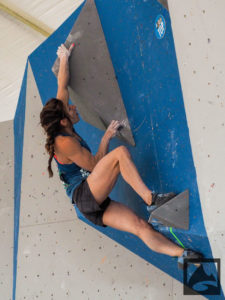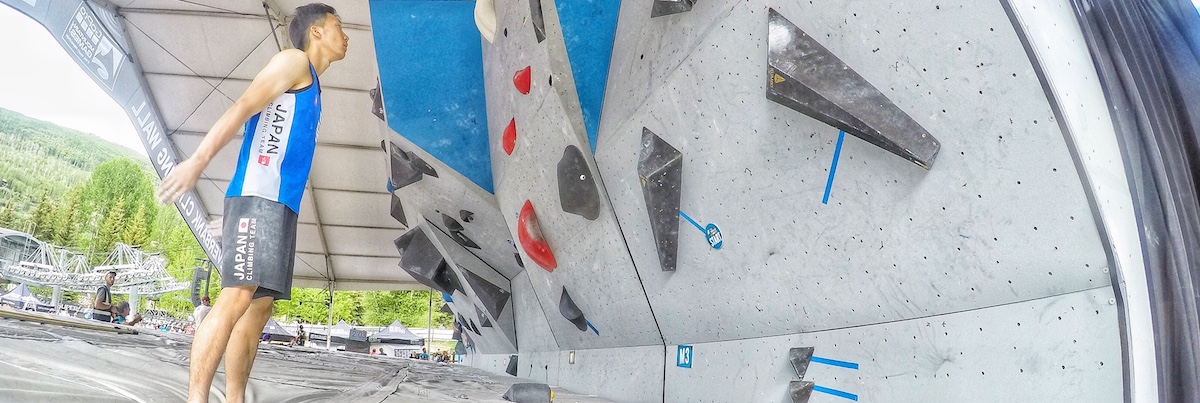Posted by: Shauna Farnell
Since its first international competition on a cliff in Italy more than 30 years ago, climbing has reached new heights, making its Olympic debut in Tokyo 2020
By Shauna Farnell
When Marco Maria Scolaris launched the first ever international climbing competition in 1985, it was on a rock wall in a valley outside of Bardonecchia, Italy. All eyes were on the cliff as rugged, mountaineering athletes scaled the wall with ropes and powerful reaches.
Even then, Scolaris hoped that some day his sport, despite its individualistic, some would even say “anti-social” nature, would one day make it to the Olympic stage.
“Nobody could have expected this development,” Scolaris said from the base of the IFSC Climbing World Cup in Vail. “It looked like mission impossible.”
After international climbing competitions were run by Scolaris and his mountaineering club for more than 20 years, The IFSC was formed in 2007, Scolaris its president.
“One of the first decisions we took was to go to the Olympics,” he said.
The first proposal was to make the discipline of lead the focus. According to Scolaris, climbing was “on the short list” for the 2012 Games, but in the end, the International Olympic Committee did not agree with this single event format.

Knowing that climbing was only going to be granted a single medal – one for men and one for women – the IFSC proposed a combination format, blending speed, bouldering and lead.
“Clearly the goal is to be in the Olympics and to place so well that in the next one, we can have three or four medals. The good news is that we’re in Tokyo but also the Youth Olympic games next year in Buenos Aires. We can test the format there,” Scolaris said.
In the meantime, climbing has grown tremendously in Japan, as evidenced in Vail this weekend as Team Japan dominated the men’s field.
“The possibility of becoming an Olympian is something I never thought [would] happen,” said Rei Sugimoto, one of Japan’s top climbers competing in the IFSC World Cup in Vail, the series solitary stop in the United States. Because bouldering is his main discipline, Sugimoto plans to add speed and lead into his repertoire with the goal of representing his country at his home Olympics in 2020.
“I want to make steady results and make it to the highest standards, then next year, start lead and speed together, so step by step to the Olympics,” he said through a translator.
Although the three-discipline combination format poses a challenge for competitive climbers worldwide, the majority of whom focus on just one discipline, American athletes cannot wait to potentially ramp up their skills for an Olympic audience.
“I never thought it would be an option. It’s like a dream come true,” said North Carolina’s Kai Lightner, who was edged out during Qualifications at the IFSC World Cup in Vail. “The exposure of our sport is huge. I don’t think it’s the ideal format, but they’re doing it the best way they can do it where all three disciplines will be showcased.”
Share this Story:






















